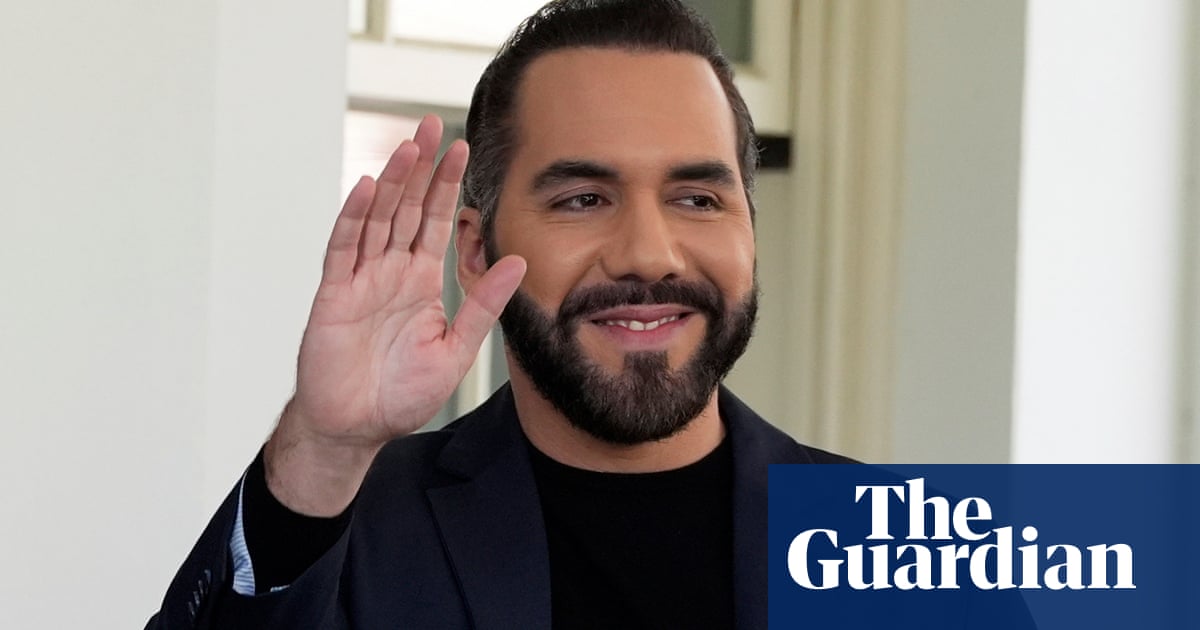El Salvador’spresident, Nayib Bukele, has proposed sending252 Venezuelans deportedfrom the US and imprisoned in his country to Venezuela, in exchange for “political prisoners” held by Venezuela.
On Sunday, Bukele asked that the Venezuelan president, NicolasMaduro, hand over 252 “of the political prisoners you are holding” under his proposed deal.
The Salvadoran leader did not say whether the prisoners would be incarcerated again upon an exchange.
Venezuela’s chief prosecutor, Tarek William Saab, said Bukele’s proposal was cynical and accusedEl Salvadorof unlawfully detaining 252 Venezuelans. Saab demanded to know what crimes the detainees were accused of, whether they had appeared before a judge, had access to legal counsel, or were allowed to contact family members. In a statement, Saab’s office called Bukele a “neofascist” and added: “The treatment received by Venezuelans in the United States and El Salvador constitutes a serious violation of international human rights law and constitutes a crime against humanity.”
Among those Bukele proposed for release fromVenezuelawere journalist Roland Carreno, human rights lawyer Rocio San Miguel, and Corina Parisca de Machado, mother of the Venezuelan opposition leader Maria Corina Machado.
He also mentioned nearly 50 detainees of other nationalities, including US, German and French citizens, as part of the proposed exchange.
Adam Boehler, US special envoy for hostage response, posted online in praise of the move and said 10 Americans were among those proposed for the exchange.
Bukele said his foreign ministry would formally present the proposal to the Venezuelan government through diplomatic channels.
In March, the Trump administration deported at least 200 Venezuelans from the US to El Salvador, accusing them of being members of the Tren de Aragua criminal gang. The US is paying El Salvador $6m to detain them in its high-security terrorism confinement centre,known as Cecot.
The Venezuelan government has said it has no political prisoners and that imprisoned people have been convicted of crimes. However, non-governmental organisations claim more than 800 people are detained for political reasons.
The Venezuelan government has denied that the Venezuelans deported by the US have gang affiliations. Lawyers and family members of the detainees have also asserted that the migrants have no ties to criminal groups.
On Saturday, the US supreme courttemporarily blockedthe Trump administration from deporting another group of Venezuelan migrants accused of gang ties under a rarely used wartime law. The court issued a stay after the American Civil Liberties Union asked it to intervene on an emergency basis.
TheTrump administrationpressed the supreme court to reject the ACLU’s request. White House officials said the president remained committed to his immigration crackdown, but gave no indication the administration would defy the court’s decision.
